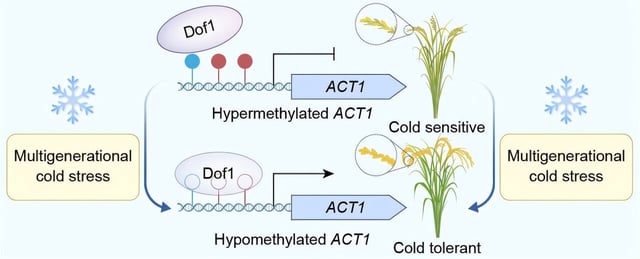Overview
- Researchers led by Prof. Cao Xiaofeng applied directional cold stress over three generations to produce rice lines whose enhanced cold tolerance persisted for at least five generations without further exposure.
- Multi-omics analyses revealed that hypomethylation at the promoter of the arabinogalactan protein gene ACT1 is the key epigenetic variation driving the acquired cold resilience.
- A targeted DNA methylation editing system was used to demethylate the ACT1 promoter and directly confirm its causal role in lifting transcriptional repression and boosting cold tolerance.
- Surveying 131 Chinese rice landraces showed that varieties from the frost-prone northeast are significantly enriched for the hypomethylated ACT1 epiallele associated with natural cold adaptation.
- By demonstrating non-genetic inheritance of an acquired trait, the study challenges traditional Darwinian evolution and outlines a “stress domestication → epigenetic variant identification → precision editing” strategy for developing climate-resilient crops.

